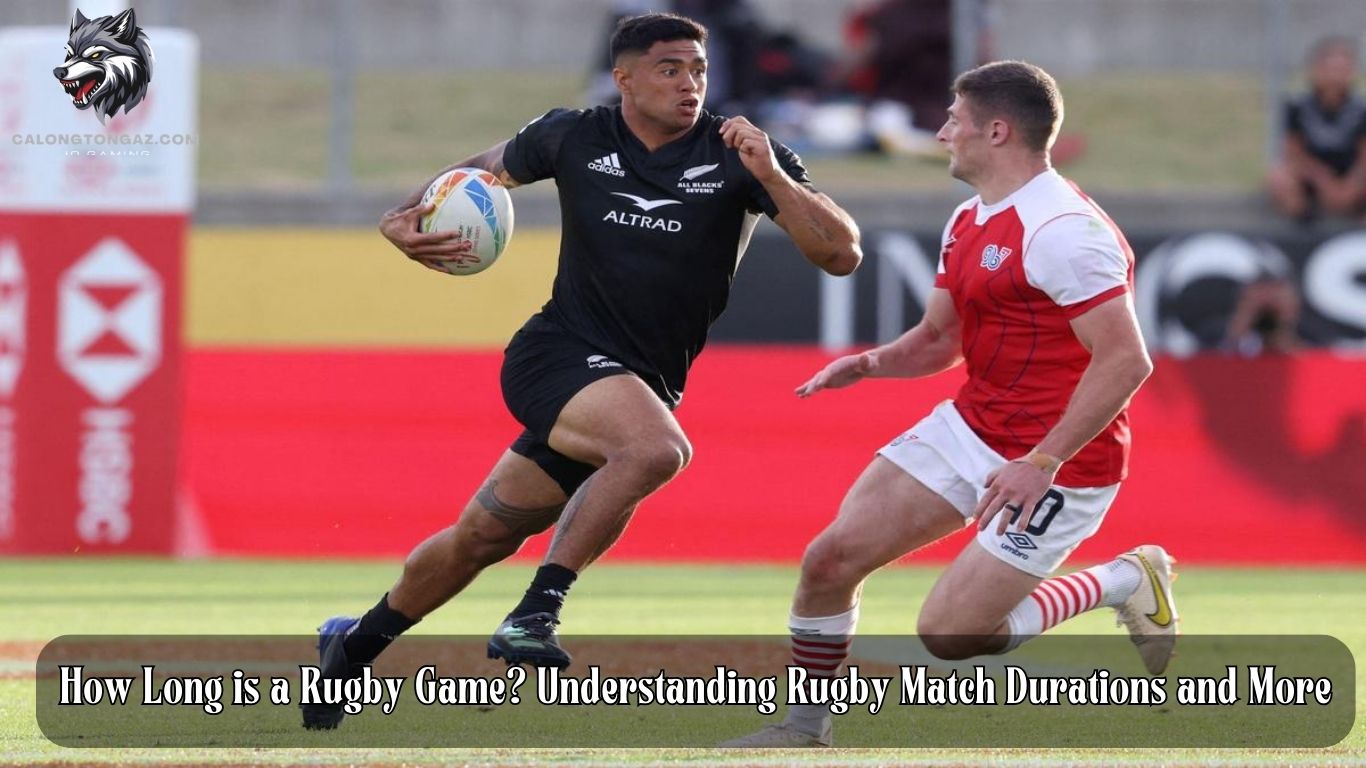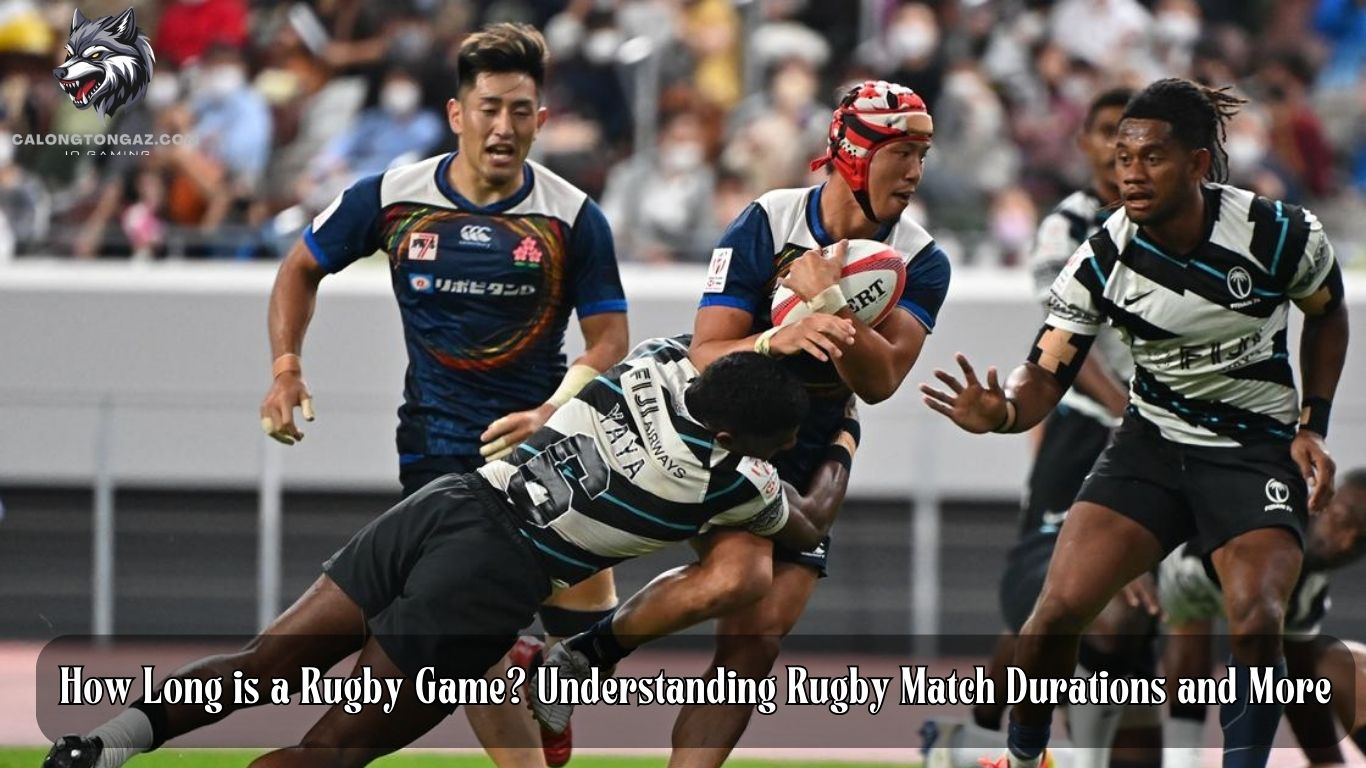When it comes to understanding sports, one common question that arises is, How long is a rugby game? Rugby matches are known for their intense action, physicality, and strategic gameplay. The duration of a rugby game can vary slightly depending on the type of rugby being played and the governing body’s rules. In this article, brought to you by Ca Long Tong AZ, we’ll explore the structure of a rugby game, its timing regulations, and other interesting facts.
Whether you’re a new fan or looking to deepen your understanding of rugby, this guide will cover everything you need to know about the length of a rugby match.
What is Rugby? A Quick Overview
Rugby is a high-energy, contact sport played with an oval ball. There are two primary formats:
- Rugby Union: Played with 15 players per side.
- Rugby League: Played with 13 players per side.
Both formats share similarities but differ in certain rules, strategies, and game durations. The sport originated in England and has grown to become a global phenomenon, with popular leagues, international tournaments like the Rugby World Cup, and a massive fan base.

How Long is a Rugby Game?
Rugby Union Match Duration
In Rugby Union, a standard match lasts:
- 80 minutes, divided into two halves of 40 minutes each.
- Halftime break: 10 minutes, giving players time to rest and strategize.
The clock runs continuously during the game, but it can stop for significant interruptions such as injuries, substitutions, or referee consultations.
Rugby League Match Duration
A Rugby League game also lasts 80 minutes, structured similarly:
- Two halves of 40 minutes each.
- A 10-minute halftime interval.
In both formats, the referee can add extra time at the end of each half for stoppages, ensuring the game runs fairly.
Variations in Rugby Sevens
Rugby Sevens, a fast-paced version of the game, differs significantly in duration:
- Each match consists of two halves of 7 minutes, totaling 14 minutes.
- Halftime is usually 2 minutes long.
- Matches in knockout stages, such as finals, may extend with extra time for tied scores.
What Happens When a Rugby Game is Tied?
Extra Time Rules
In major tournaments or knockout stages, a tied game often leads to extra time. The specifics depend on the competition:
- Rugby Union: Two additional halves of 10 minutes each.
- Rugby League: Golden Point, where the first team to score wins during extra time.
Added Time and Stoppages
Rugby games allow for “injury time” to ensure fairness, particularly when significant delays occur. This added time can slightly extend the total match duration.
The Importance of Time Management in Rugby
Rugby is as much about strategic time management as it is about physical gameplay. Teams carefully pace themselves, especially in high-stakes tournaments. Coaches use the halftime break to assess performance and make tactical adjustments.
FAQs About Rugby Game Durations
Why Does Rugby Have Continuous Play?
Rugby’s running clock system emphasizes the sport’s physical and tactical endurance. Unlike sports with frequent timeouts, rugby promotes momentum and flow, making every second count.
What’s the Longest Rugby Game Ever Played?
The longest recorded rugby match lasted 24 hours and 51 minutes, played as a fundraising event in the UK. However, standard professional games adhere strictly to the regulated durations.
Does Stoppage Time Impact Game Duration?
Yes, stoppage time ensures fair play but rarely exceeds a few minutes. It depends on factors like injuries, substitutions, or prolonged scrums.
Specialized Terminology and Links to .IO Games
While exploring rugby timings, you might also enjoy strategic .IO games, where players manage resources and time for optimal outcomes. Check out our Ca Long Tong AZ for more gaming content and strategies!

Understanding Time Management in Rugby: A Closer Look
In addition to knowing the duration of a rugby match, it’s essential to understand how time management plays a critical role in the game’s dynamics. Whether it’s Rugby Union or Rugby League, teams must efficiently manage the clock, not just in terms of match time but also regarding game strategies, breaks, and injuries.
In professional rugby, every second counts. The clock runs continuously, and referees keep it going, even during scrums or lineouts, unless the game is stopped for serious injuries or other delays. This means the teams need to keep the ball in play and avoid unnecessary stoppages, as each break in play gives the opposing team an opportunity to regroup, making it a strategic advantage to manage time wisely.
The Role of Time in Strategy
As the game progresses, the clock plays a more prominent role in influencing game tactics. Coaches and players must decide how to manage the final moments of a match, especially if the game is close. Teams leading the game may look to keep possession and slow the tempo to ensure that the clock works in their favor, while teams trailing may speed up their play, opting for risky maneuvers to score quickly.
In Rugby Union, especially, the end of the match can get intense with the last few minutes offering either a chance for a comeback or a final push for victory. Teams will often adopt strategies designed to keep the game alive and score when the clock is ticking down. For example, teams may employ a “kick for touch” strategy to stop the clock or try to manipulate the tempo using their forwards or backs.
Timeouts and Tactical Breaks
Unlike other sports, rugby does not allow for timeouts, except in the case of injury time, which contributes to the game’s overall flow and adds to its fast-paced nature. Injuries and medical assessments can result in stoppages that delay the action, but the game will usually resume quickly afterward.
In many ways, this lack of traditional timeouts or breaks encourages teams to be physically prepared and mentally focused throughout the entire match. The game’s continuous nature means players must maintain their energy, and coaches must provide insights quickly during halftime.
Cultural Influence of Rugby’s Timing Structure
Rugby’s continuous clock structure is partly responsible for the game’s appeal. It maintains momentum and minimizes interruptions, which is one reason why rugby fans often appreciate the uninterrupted flow of the sport. Teams must adapt to the game’s pace, considering the clock’s ticking influence as the game progresses.
This style of play has been adopted across various rugby leagues worldwide, with small differences in how timing is handled. For example, in different international competitions, such as the Six Nations or the Rugby World Cup, the rules regarding extra time and added time can vary slightly, but the central concept of match duration remains similar.
FAQs on Rugby Timing
Why is Rugby Played Without Timeouts?
The continuous flow of rugby adds to its excitement and allows teams to develop rhythm. By not allowing timeouts, the sport ensures that the outcome is determined by endurance, skill, and strategy rather than by pauses in play.
How Does the Clock Affect Rugby?
The continuous clock is integral to rugby’s unique style. Teams must strategize to maximize their time with the ball and minimize stoppages, as the clock is always ticking.
Are There Different Time Rules for Rugby Tournaments?
Yes. Different rugby tournaments may have variations in timing for extra time, particularly during knockout stages or finals, where games are tied. The general match time for both Rugby Union and Rugby League remains 80 minutes, but rules regarding overtime or sudden-death extra time can vary.
Conclusion
A standard rugby game lasts 80 minutes, split into two halves, with minor variations depending on the format. The inclusion of added time ensures fairness and keeps the game thrilling until the final whistle. Whether you’re watching Rugby Union, Rugby League, or Rugby Sevens, knowing the game’s timing structure enhances your viewing experience. For more sports insights, visit Ca Long Tong AZ and explore our comprehensive guides on games, sports, and beyond!
